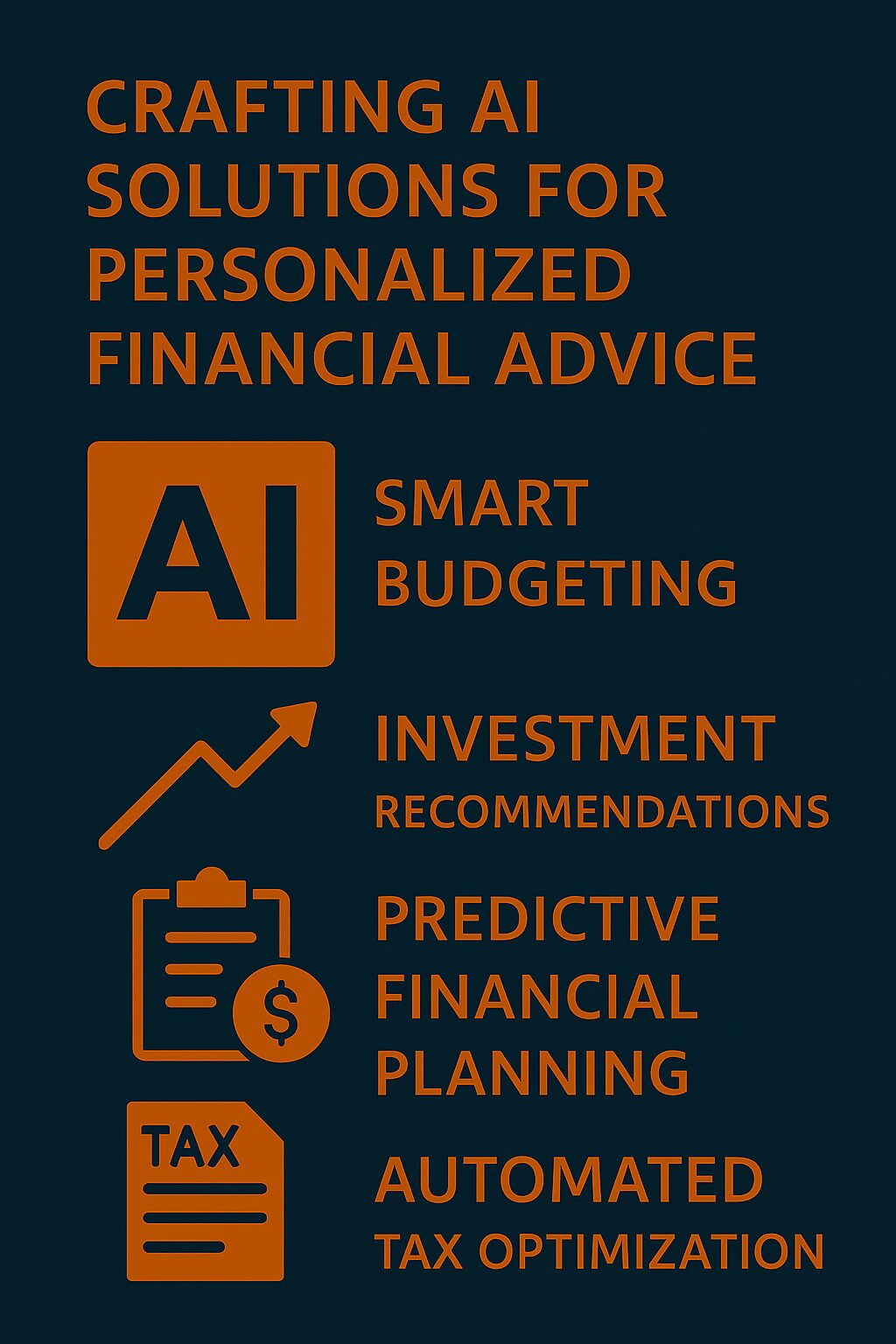Introduction
AI-driven financial advisory tools are transforming how individuals manage money, plan investments, and optimize savings. By leveraging machine learning, predictive analytics, and automation, AI can offer tailored financial guidance, identify spending trends, and improve wealth management strategies.
This guide explores how to develop AI-powered solutions for personalized financial advice, structured with SEO-friendly formatting to improve visibility and user engagement.
1. Why AI is Revolutionizing Financial Advisory Services
Traditional financial advisors rely on historical data and personal consultations to offer guidance. AI enhances this process by automating analysis, generating personalized strategies, and providing real-time financial insights.
Key Benefits of AI in Financial Advice
- Smart Budgeting & Expense Tracking – AI categorizes spending and suggests budgeting improvements.
- Investment Recommendations – AI analyzes market trends to provide tailored investment options.
- Predictive Financial Planning – AI forecasts potential financial risks and growth opportunities.
- Automated Tax Optimization – AI suggests tax-saving strategies based on income patterns.
- Personalized Savings Goals – AI adjusts recommendations based on user preferences and goals.
These AI-driven solutions empower users to make informed financial decisions effortlessly.
2. Technologies Behind AI Financial Advisory Tools
AI-powered financial tools utilize automation, deep learning, and predictive analytics to refine financial recommendations.
Core AI Technologies for Financial Advice
- Machine Learning Algorithms – AI learns from spending habits to create personalized strategies.
- Natural Language Processing (NLP) – AI chatbots provide conversational financial guidance.
- Predictive Analytics for Market Insights – AI forecasts stock trends and financial risks.
- AI-Powered Risk Assessment Models – AI evaluates financial stability and investment risks.
- Secure AI-Based Fraud Detection – AI identifies suspicious transactions to protect assets.
These technologies enhance financial planning accuracy and personalization.
3. Step-by-Step Guide to Building AI Financial Advisory Solutions
Developing AI-driven financial tools requires structured planning and seamless technology integration.
Steps for AI Financial Advice Development
- Define User Financial Needs & Objectives – Identify target audiences and financial priorities.
- Gather & Process Financial Data – Train AI models using banking records, spending habits, and investment patterns.
- Develop AI-Driven Recommendation Engines – AI must generate customized financial plans.
- Integrate AI with Banking & Finance Apps – Ensure AI solutions sync with financial platforms.
- Enable AI-Powered Risk Assessment – AI must detect financial risks and offer strategic solutions.
- Test & Optimize AI Model Accuracy – Continuously refine AI financial predictions for better results.
This step-by-step process ensures efficient AI-powered financial advisory solutions.
4. SEO Optimization for AI Financial Advisory Platforms
SEO strategies improve visibility and user engagement for AI-driven financial advisory services.
Best SEO Practices for AI Financial Solutions
- Keyword Optimization – Use terms like “AI financial advice,” “smart investment AI,” and “automated wealth management.”
- Content Marketing & Finance Guides – Publish expert insights demonstrating AI-driven financial improvements.
- Mobile-Friendly AI Solutions – Ensure AI financial tools are accessible across devices.
- Industry Partnerships & Financial Experts – Strengthen AI credibility by collaborating with finance professionals.
- Enhanced Metadata & Structured Content – Optimize headings, descriptions, and search tags.
SEO ensures AI financial advisory platforms rank higher in search results and attract relevant audiences.
5. Enhancing AI Financial Advisory Solutions for Long-Term Success
AI financial advisory platforms require continuous optimization to improve accuracy and relevance.
Metrics for AI Financial Advice Optimization
- User Engagement & Retention Rates – AI must refine recommendations for higher adoption.
- Investment Success Predictions – AI models should improve accuracy in financial forecasting.
- Fraud Detection & Risk Prevention – AI must enhance security measures for financial transactions.
- Personalization Adaptability – AI should tailor financial plans based on evolving user needs.
- Ethical AI & Privacy Compliance – AI must adhere to financial regulations and data protection laws.
Regular updates ensure AI-driven financial advice tools remain efficient and reliable.
Conclusion
AI-powered financial advisory tools optimize budgeting, investment planning, and financial security through data-driven recommendations. By incorporating machine learning, predictive analytics, and automation, businesses can develop personalized financial solutions that help users make informed decisions.

